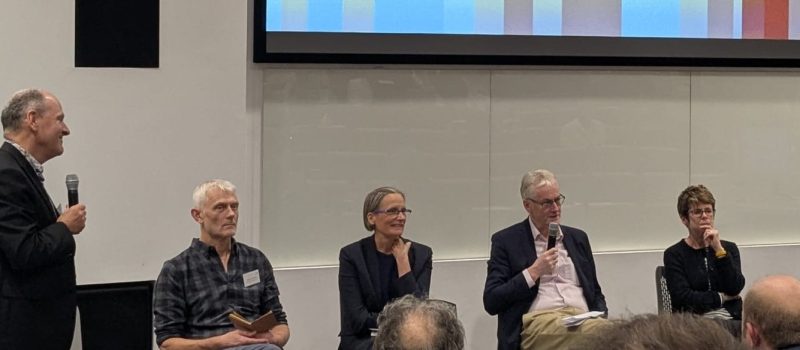I post here a summary of the comments I made, as part of a ‘directors’ panel’, at the Tyndall Centre @ 25 years conference, ‘Our Critical Decade for Climate Action’, 8-10 September 2025‘
The first thing to say is that the Tyndall Centre was founded and launched – in November 2000 – at a most anomalous moment in recent human history. It was mid-way between the end of the Cold War in 1991 and the financial crash of 2007/08. This was the culmination of the 1990s decade with its talk of peace dividends and ethical foreign policies, an optimism about a new international order, the signing of the Kyoto Protocol in 1997, and much more. And the Centre started operations before 9/11 and the chilling effect this had on international relations, before post-crash austerity, and before the polarising toxicity of new social media.
Looking back to the Centre’s founding motivation and ambition 25 years ago, I would observe these three characteristics of my seven year tenure:
- We over-valued research knowledge (evidence, if you will) in effecting social and political change : great science, great inter-disciplinary research, means little if you can’t win the political argument (think Brexit vote in 2016).
- We didn’t have – or didn’t seek to gain — a sufficient understanding of how and why change happens in societies, especially the dynamics of change in the non-western world, and non-democratic countries;
- We over-weighted the significance of a changing climate in determining the future well-being of the world at large : not every problem is climate-shaped. Or, to quote one of my recent book titles, ‘Climate Change Isn’t Everything’.
My general point is that the significance of a changing climate, and how to adapt to it and seek to manage it, can never be divorced from unfolding developments in human culture, technology and geopolitics. Context matters or, put differently, climate change is a relative risk not an absolute one.
And, so, compared to year 2000, the challenges of climate change are different in today’s world, a world where we have … the return of war in the west and growing defence insecurities; an increasingly febrile democracy in the West; the hollowing-out of international institutions; social fabric and economic growth undermined by devastatingly misguided COVID policies; the corrosive consequences of social media; and, the elephant in the room, the uncontrolled and uncontrollable disruptor that is AI. My advice would be: don’t so focus on climate change that other rising threats go unattended.
But in looking back, we should also recognise what has been achieved. The glass is half-full if we look carefully. So, among many other positive trends,
- World per capita emissions are flat-lining, slightly falling; those in the UK down by more than 50% since Tyndall founded, and in the USA down by 25%; China has reached peak emissions.
- The old ‘high emissions’ scenarios of SRES A2 and RCP 8.5 are now totally implausible, ruling out some of the wilder claims about ‘runaway climates’.
- Absolute world poverty rates are down from 30% (in 2000) to around 10% today.
- Since 2000, global access to electricity has increased from around 80% to 92%.
- The global number of deaths from hydro-meteorological disasters has flat-lined since 2000.
- Climate adaptation awareness, policies and actions have increased enormously since the founding of the Tyndall Centre, in no small measure due to the Centre’s work during its first decade.
And, by the way, don’t obsess about 1.5°C; let’s be honest, nearly everyone knew in 2015 that 1.5°C was an unachievable target, and so it has proved; 2°C was already the stretch target.
Mike Hulme, 15 September 2025


